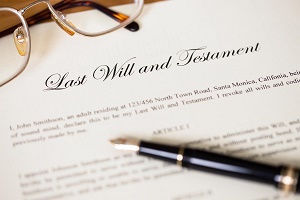A properly drafted will is a legal document which is legally enforceable by the executors and beneficiaries under the will. As with any legal document, it is only valid if properly executed in accordance with legal rules. Great care must be taken, both in drafting the will to ensure the individual’s wishes are reflected – and in making sure all legal formalities are complied with.
What types of will are there?
In Ontario, there are two types of will: traditional typed wills, and holograph wills. Both are valid only if they conform to the legal requirements.
A holograph will is a will that is entirely handwritten by the testator (the person making the will), and must be dated and signed by the testator at the bottom of the document.
The best way to ensure your wishes are fulfilled, and that your estate is adequately protected on your death, is to take strategic professional advice from an experienced will and probate lawyer; and by having your will properly be drafted, and executed in accordance with legal requirements. Any mistake in executing the will would not usually be discovered until after your death – and by then it may well be too late. The result could be a time consuming and expensive dispute if there is a disagreement as to how the will and the estate should then be dealt with.
How should the will be executed?
No witnesses are required for a holograph will to be legally binding, so long as it is completely handwritten, and signed and dated by the testator. It if is typed out, it will not be valid; and if the document is a proforma with spaces completed in the testator’s handwriting, it will not be valid as a holograph will.

The succession law Reform Act states that the testator’s signature must be placed “at, after, following, under or beside or opposite to the end of the will so that it is apparent on the face of the will that the testator intended to give effect by the signature to the writing signed as his or her will”. This means that if there is, for instance, a note below the testator’s signature listing certain items to go to a named individual, the validity of the will could be in doubt.
Anormal, the typed will must be signed by the testator in front of two independent witnesses who should also sign the will in the testator’s presence. A witness must not be a beneficiary or an executor of the will, nor married to a beneficiary or executor. All three parties must be together when signing. There must be no question of fraud or duress, otherwise, the will could be invalid and of no effect.
Problems with signing the will
What if the testator is unable to personally sign the will because they are physically incapable, or because they simply do not know how to write? In this case, it is possible to have a third party sign the will on the testator’s behalf. However, the testator must have the mental awareness of what is happening. We should also mention that if the testator cannot read the will, it should be read aloud to the testator before the will is executed.
In some cases, for example, where the testator wants to sign the will but is in pain or is illiterate, they can make their ‘mark’ instead. The mark must be intended to be the testator’s signature, be willingly made by him or her.
In cases where the testator cannot sign the will personally, or signs by way of ‘mark’, there should be an appropriate clause reflecting the circumstances of the execution of the will. Without this, there could be questions raised about the validity of the will and or the testamentary capacity of the testator after the testator’s death.
It is therefore vital to take expert legal advice so that you can be sure you have a will that is properly drafted and executed in accordance with the law.
How can we help?
If you need to make a will, contact our experienced wills and probate solicitors before taking any further steps. We will take full instructions from you about your wealth, your finances, your family and dependants, and your specific wishes before drafting your will. We can then ensure your will is executed in accordance with the legal requirements, giving you the peace of mind you deserve.
Contact us now at enquiries@rogersonlaw.com.
Rogerson Law Group provides wills and probate services in the entire GTA including Toronto, Scarborough, Mississauga, Vaughan, Brampton, Richmond Hill, Etobicoke, and Barrie and surrounding areas with offices located in downtown Toronto, Barrie, and associated offices in North York and Ottawa.


